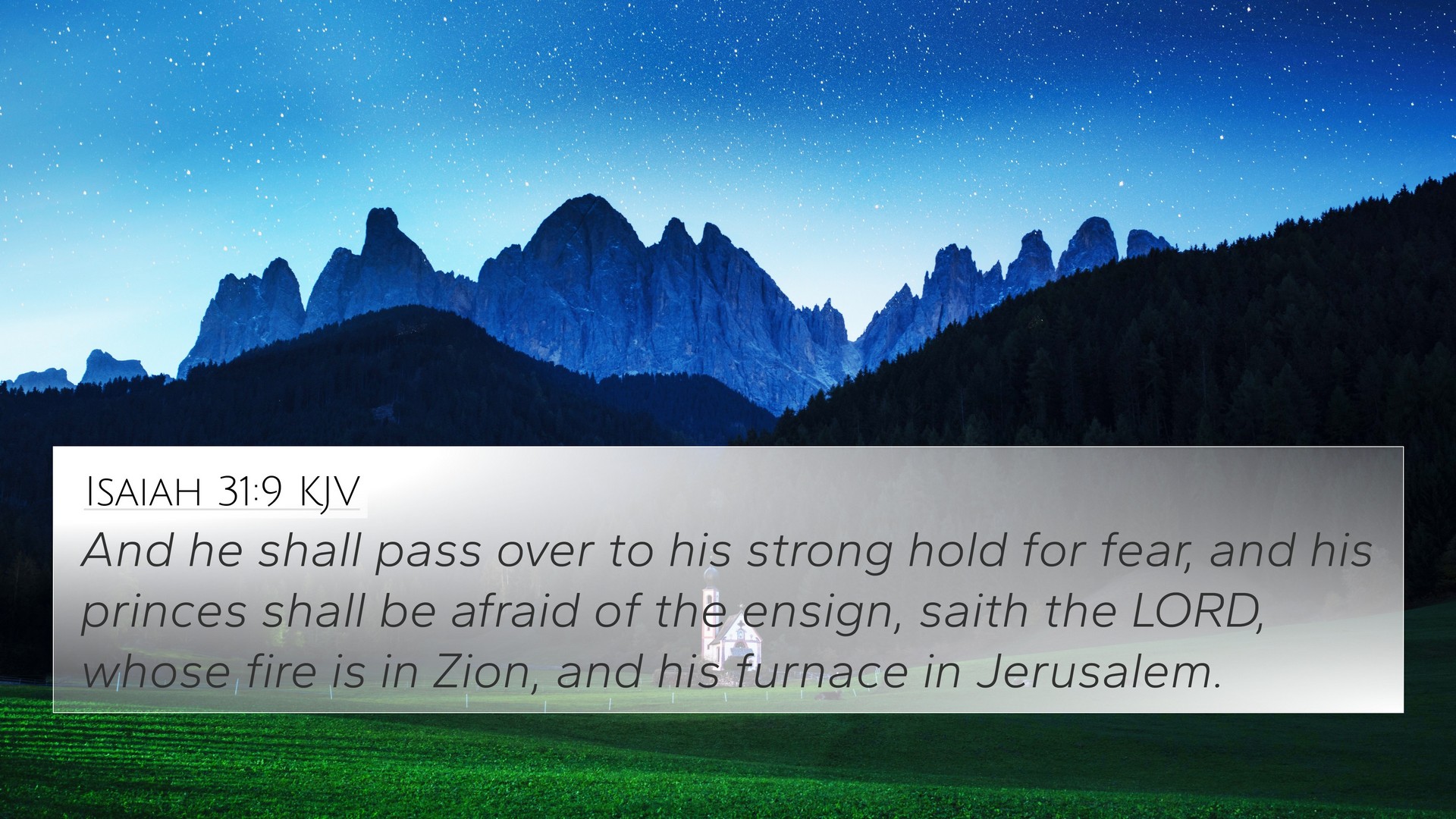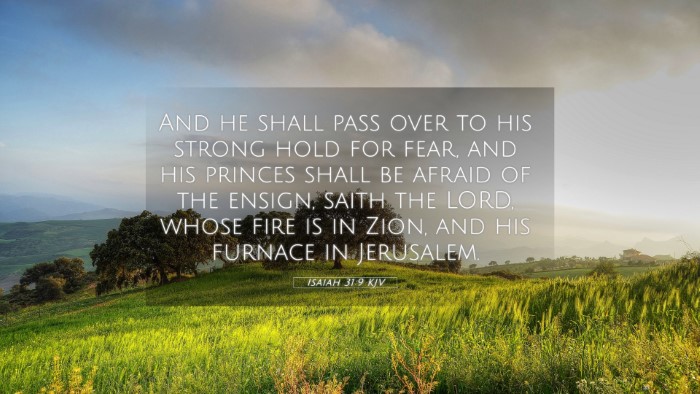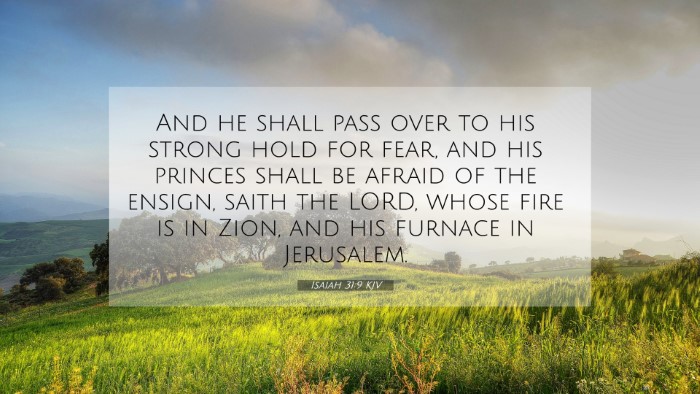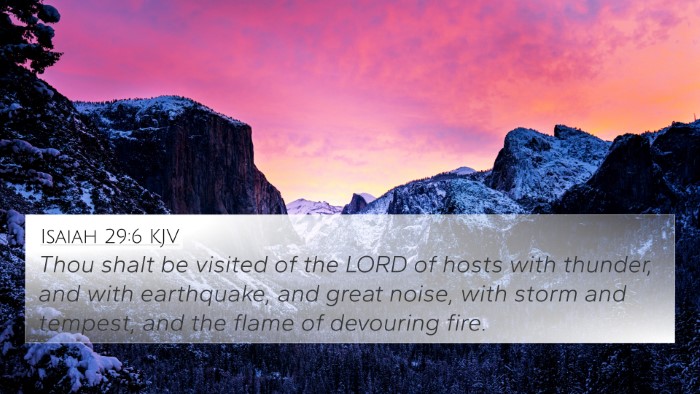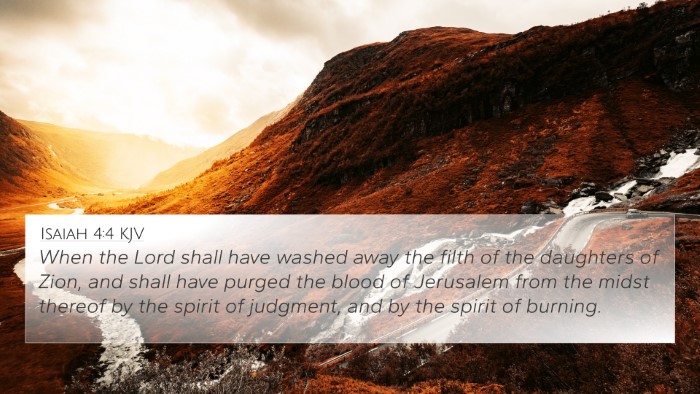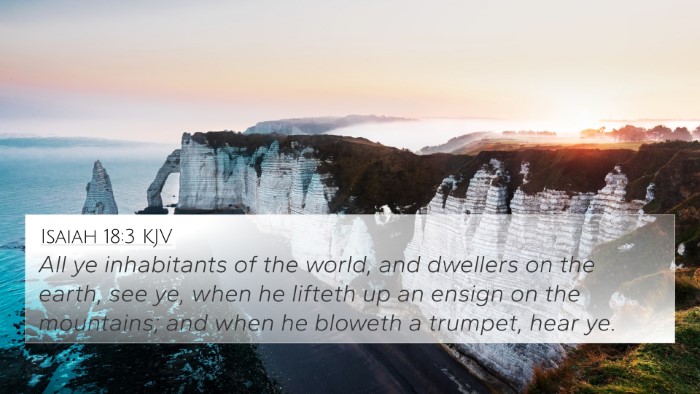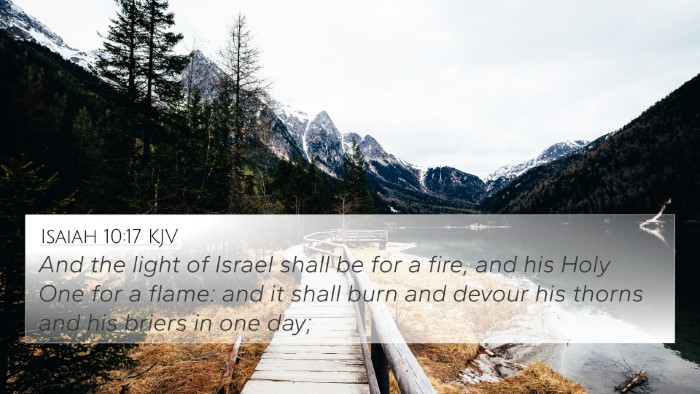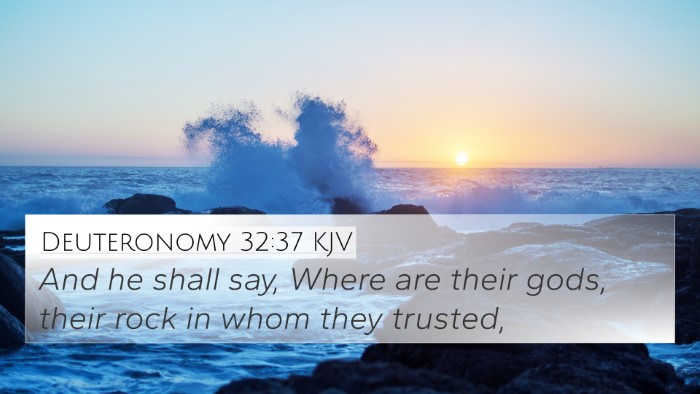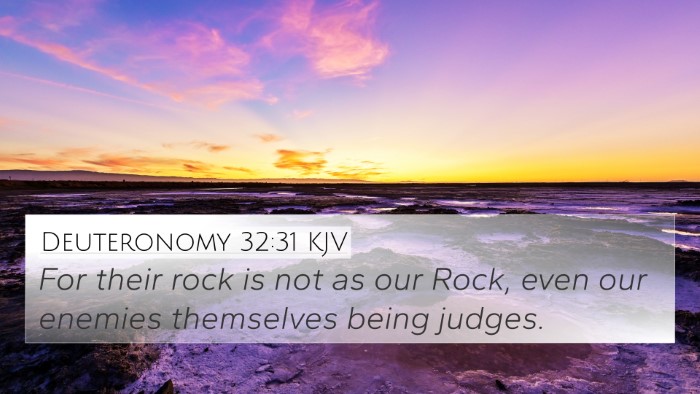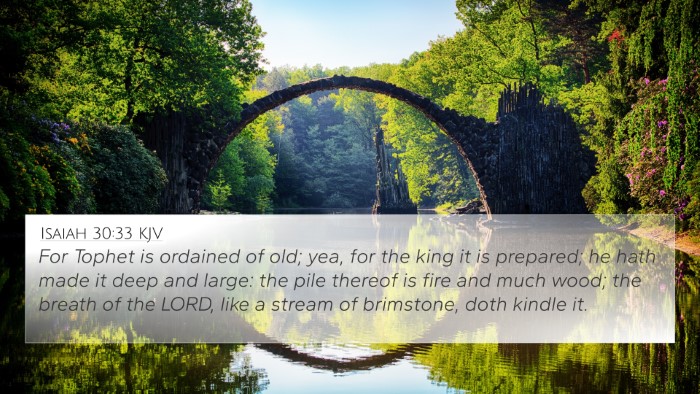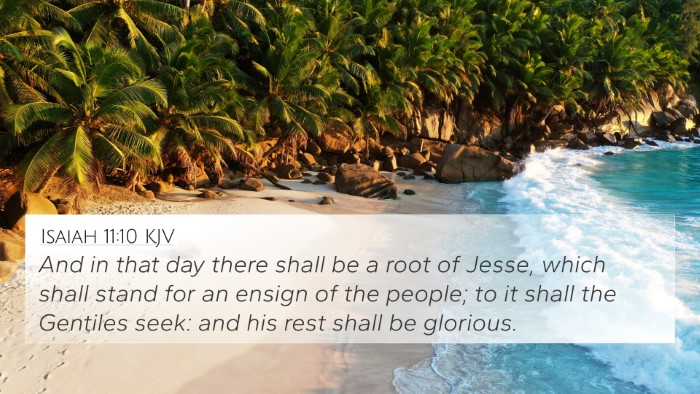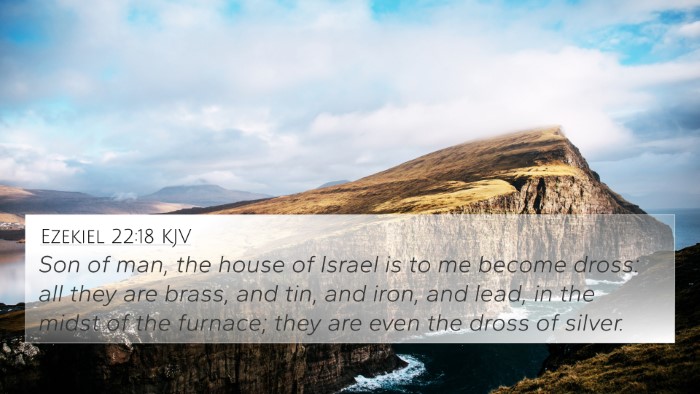Understanding Isaiah 31:9
Isaiah 31:9 states: "And he shall pass over to his strong hold for fear, and his princes shall be afraid of the ensign, saith the Lord, whose fire is in Zion, and his furnace in Jerusalem." This verse highlights the futility of relying on human strength and the consequences of turning away from God.
Context and Overview
The context of Isaiah 31 emphasizes God's judgment against nations that rely on military power rather than divine assistance. Isaiah warns the people of Judah against seeking help from Egypt during times of crisis, suggesting that such alliances are ultimately weak and lead to destruction.
Commentary Insights
-
Matthew Henry's Commentary:
Henry points out that the 'strong hold' refers to the places of safety that the Egyptians may think they have, but the true strength lies with the Lord. The fear of God is contrasted with human fear, illustrating the supremacy of divine authority.
-
Albert Barnes' Notes:
Barnes emphasizes that the 'fire' of God represents His judgment and purifying power within Zion and Jerusalem. The imagery of a furnace suggests a place where impurities are burned away, indicating that God's presence will ultimately purify His people from their reliance on false security.
-
Adam Clarke's Commentary:
Clarke interprets the verse as a warning against the misplaced confidence in worldly alliances and armaments. He suggests that the 'princes' who should be brave are instead filled with fear because they lack the assurance that comes from trusting in God.
Bible Verse Cross-References
This verse connects to several other scriptures that illustrate similar themes. Below are 10 cross-references that enrich the understanding of Isaiah 31:9:
- Proverbs 21:30 - "There is no wisdom, nor understanding, nor counsel against the Lord." This verse reinforces the idea that human wisdom fails in the face of divine authority.
- Jeremiah 17:5 - "Cursed is the man who trusts in man and makes flesh his strength, whose heart turns away from the Lord." This highlights the danger of misplaced trust.
- Psalms 33:16-17 - "The king is not saved by his great army; a warrior is not delivered by his great strength." This underscores God's sovereign power over earthly might.
- 2 Kings 18:21 - "Now behold, you trust in the staff of this crushed reed, even on Egypt; on which if a man leans, it will go into his hand and pierce it." This metaphor illustrates the futility of relying on Egypt.
- Isaiah 30:3 - "Therefore shall the strength of Pharaoh be your shame, and the trust in the shadow of Egypt your confusion." This foreshadows the disgrace that comes from reliance on human powers.
- Jeremiah 46:17 - "They did cry there, Pharaoh king of Egypt is but a noise; he hath passed the time appointed." This verse indicates the impotence of Egypt in a crisis.
- Acts 4:12 - "Neither is there salvation in any other: for there is none other name under heaven given among men, whereby we must be saved." This New Testament reference relates to the ultimate source of salvation being in God alone.
- Hebrews 12:29 - "For our God is a consuming fire." This connects back to the motif of divine judgment and purification mentioned in Isaiah 31:9.
- Matthew 26:52 - "For all who take the sword will perish by the sword." This reflects on the futility of relying on violence and warfare.
- Isaiah 1:25 - "And I will turn my hand upon thee, and purely purge away thy dross, and take away all thy tin." This illustrates God's purifying work, relevant to the furnace imagery in Isaiah 31:9.
Thematic Connections
The thematic connections between these verses revolve around several key ideas:
- Human vs. Divine Strength: Many verses emphasize the limitations of human power compared to God's omnipotence.
- Trust and Security: The theme of placing trust in God rather than in man is prevalent, encouraging believers to seek divine protection.
- Judgment and Purification: God's judgment is a recurring theme, highlighted through the furnace imagery and the call for purification.
- Fear vs. Confidence: The contrast between human fear and the confidence that comes from God’s promises is illustrated throughout the referenced texts.
- Historical Context: Many of these verses remind the readers of the historical context of Israel's reliance on foreign nations, reflecting lessons applicable to contemporary situations.
Using Cross-References for Deeper Study
Cross-referencing Bible texts can enhance your understanding and interpretation of specific verses like Isaiah 31:9. Here are some tools and methods for effective Bible cross-referencing:
- Bible Concordance: Use a concordance to find related verses by keywords.
- Bible Cross-Reference Guide: Utilize guides that highlight connections between different books and verses.
- Cross-Reference Bible Study: Engage in study groups where participants can share insights on interrelated verses.
- Bible Reference Resources: Access various commentaries and study aids that provide contextual understanding of scripture.
- Identifying Themes: Look for thematic connections between verses that highlight shared messages or teachings.
Conclusion
By understanding Isaiah 31:9 through the insights of public domain commentaries and a rich tapestry of cross-references, readers can gain profound insights into the text’s meaning. The call to rely on God rather than worldly powers resonates throughout scripture, encouraging believers to seek divine strength amidst life’s challenges.
